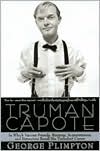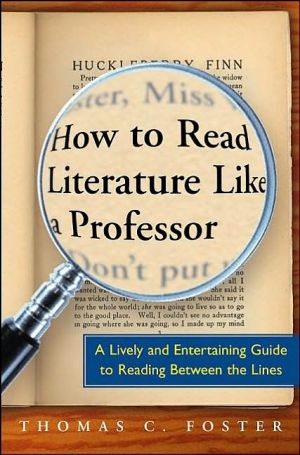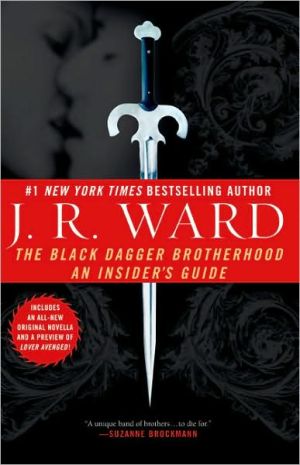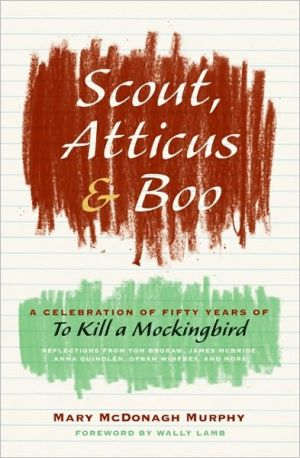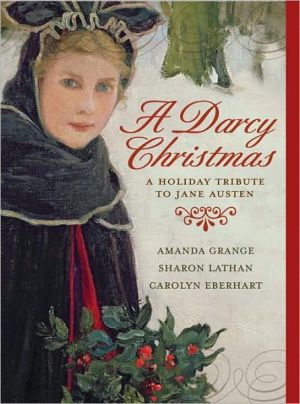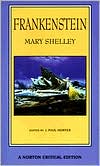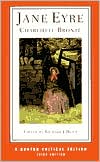Truman Capote: In Which Various Friends, Enemies, Acquaintances, and Detractors Recall His Turbulant Career
He was the most social of writers, and at the height of his career, he was the very nexus of the glamorous worlds of the arts, politics and society, a position best exemplified by his still legendary Black and White Ball. Truman truly knew everyone, and now the people who knew him best tell his remarkable story to bestselling author and literary lion, George Plimpton.\ Using the oral-biography style that made his Edie (edited with Jean Stein) a bestseller, George Plimpton has blended the...
Search in google:
In the style of his bestselling Edie Sedgwick biography, Edie, Plimpton blends the voices of capote's lovers, detractors, and colleagues into an informative and highly readable narrative.William GeorgiadesGeorge Plimpton, that quintessential American man of letters, here invites you to "a cocktail party, glass in hand (probably a vodka)," where you will overhear ruminations on every corner of Truman Capote's life. What you're in for is gossip of the most salacious and informed variety, with Plimpton acting as genial segue artist: "As soon as he landed in a town -- Paris, say -- it didn't seem to take him more than a minute to be at the center of things." And that is the initial thrill of this book, the center stage vantage it offers on the determined self-formation of an artist. It charts Capote's early childhood in Monroeville, Ala. -- then, in New York, his brief moments as an office boy at the New Yorker (he was fired) and his acceptance at the Yaddo Writers Colony. Then comes the glitter -- Other Voices, Other Rooms, Breakfast at Tiffany's and In Cold Blood -- followed by the climax, Capote's rather over-pondered Black and White Ball, which receives more space here than any one of his books. This is quickly followed by ruin in the guise of alcoholism and his roman à clef Answered Prayers. People are, of course, unkind about him. Norman Mailer weighs in on the ball, saying, "It certainly was his greatest coup. For some, and I might be one of them, that party was even greater than any particular one of his books." (Contextually, the statement doesn't seem particularly nasty, especially with the likes of Gore Vidal attempting to be both withering and nonchalant.) The portrait that emerges is of an increasingly vicious, jealous, competitive, deceptive little bastard, the nasty little girl of American letters -- a version of Dorothy Parker. One hundred seventy-four impressive names (a number of them now dead) have been diligently interviewed here, and one can be forgiven for wondering whether anyone with a brain has a kind word for the man. The omissions too are curious -- neither Harper Lee nor C.Z. Guest are included, perhaps explaining the unfortunate inclusion of a 12-page remembrance by one of Capote's boyfriends' daughters. But by the end of this oral biography, there's a more autumnal feeling in the air. Dominick Dunne recalls his own period of drying out, during which he received a letter of admiration, out of the blue, from Capote. "We were not that good friends that I deserved that kind of letter. So what I had done is obviously what he knew that he should have done. After he died it became very fashionable to kick him. Not me. I've never forgotten that letter he wrote me." Later comes the charming revelation that Capote made a series of decorative boxes, and Truman Capote ends on a disarmingly gentle note with poet James Dickey's eulogy. Somehow, in the midst of the cacophonous din of this cocktail party, Plimpton has ferreted out the sweetness of the man, using the same method that Dickey described as Capote's: "the craft of the artist by means of which the intently human thing is caught." -- Salon
1966: In Which TC Decides to Give His Black-and-White Ball \ JOHN KNOWLES Don't you think Truman sat there in Monroeville Alabama, when he was about ten, deeply rejected and out of it, strange little outcast, even in his own house, and said that someday he would hire the most beautiful ballroom in New York City and he would have the most elegant and famous people in the world there?\ • • •\ LEO LERMAN The ball was one of his major works. As much a major work as some of his short stories. He sat there planning it all summer long. I came back from somewhere to find him surrounded by these notebooks. I wondered what work is he writing? It turned out to be this ball. One of the things he adored saying was "Well, maybe you'll be invited and maybe you won't." He'd say things like "Well, are we going to have so-and-so?" Then he'd make little notes. He had the most marvelous time doing it. It was his reward for all those years he kept for himself. It was ostensibly for Kay Graham. It was for Truman.\ DOMINICK DUNNE Two years before Truman's ball, on my tenth wedding anniversary, my wife, Lenny, and I gave a black-and-white ball where the ladies were asked to dress in black and white. We had a policy that no one could bring houseguests or anything because there was just limited space. At the last minute Truman called and said, "Yes, yes, I'm coming, I'm going to be there, but I'm bringing three guests." Well, we didn't have the nerve to say to him, "Well, you can't bring them." They turned out to be Alvin Dewey, the FBI agent, his wife, and a third person involved in the In Cold Blood case. It was a very glamorous affair, filled with film stars. These people from that little town in Kansas were absolutely awed by it. I mean David Niven, Gina Lollobrigida, Natalie Wood, Loretta Young, Jennifer Jones, I mean it went on and on. That was 1964, the days when Hollywood was still the kind of Hollywood that we fantasize about.\ We had our house totally cleared of furniture and off the library in the back there was this tent so huge that friends who had been coming to our house for years were disoriented, they didn't know where they were. We had two bands. It was very beautiful, an extravagant waste of money. I mean, later in life I went broke, and that was a perfect example of why. Truman loved it. I have these incredible photographs of him dancing with Tuesday Weld, talking to Jennifer Jones. He was one of the last ones to leave. Then two years later he gave his great ball, the black-and-white ball, did the same thing, but he didn't invite us!\ GEORGE PLIMPTON Truman must have kept at his guest list all that summer, pruning, adding, mostly pruning, I suspect. I remember summer day at the Bennett Cerfs' in Mount Kisco--the estate called the Columns because the money to build it had come the proceeds Bennett got for his syndicated columns-- "Tradewinds," "Cerfboard" among them. It was a hot day and I remember the luncheon guests gathered around the swimming pool that afternoon--Frank Sinatra, Mia, his young wife then, and Truman of course. Mia in a black bathing suit, as I remember, was lying on her back in the sun by the edge of the pool--just enchanting, and not really part of the conversation or anything, when suddenly a butterfly landed on the exposed part of her breast, above the line of the bathing suit. It was one of the large swallowtail variety, the kind that fans its wings absolutely straight up and holds them there motionless, a sail for an instant, and then fans them again. Absolutely beautiful, of course, obviously because it had picked Mia to land on, faunlike, childlike, and we all stared spellbound. Then Truman broke it, quite abruptly. "What about the Goetzes?" he called out quite loudly, or some such name. "Should I invite them, or consign them..."\ • • •\ R. COURI HAY (publicist) Truman always claimed he invited 500 of his friends and made 15,000 enemies.\ • • •\ BOB COLACELLO (writer) Truman did invite Andy Warhol to the black-and-white ball, but he couldn't bring anyone, which for Andy in the sixties was a major agony.\ • • •\ PETER MATTHIESSEN (writer) Truman was kind of upset when I told him my book was going well and I didn't want to break off to go to the black-and-white party. I explained that I would only get drunk and lose the drift of things for two or three days, but he was utterly unmollified. He was even more annoyed when Bill Styron stayed home, too, for the same reason. Bill had rung up to ask if I was going to Truman's party, and when I said, "No," he said, "Great! I'm not going, either!" As it turned out, we missed something wonderful, and Bill uphraids me every few years--"You talked us out of the best party in history!" Next time I saw Truman, he was still a little sulky. When I asked if I was forgiven, he burst out, "Cecil Beaton came all the way from London for my party, and you wouldn't even come in from Sagaponack!"\ • • •\ MARIA THERESA CAEN (literary agent) I flew from San Francisco to New York, carrying my mask. Literally everyone, porters at the airport, cabdrivers, strangers, it seemed like all of New York knew about the party. I couldn't put my mask in my bag, it would have been all squashed and ruined. It was on a stick, covered in cellophane, and everyone knew I was going to Truman's ball. They'd say, "Oh! You're going to Truman's party!" Not to "Capote's party" but to "Truman's party." It was so intimate. For a while it looked like I was going to Truman's ball with a bath towel and the mask because airline lost my bag with my dress. It finally arrived at the hotel hours before the ball. In the meantime, Geraldine Stutz sent over something I could wear from Bendel's in case my dress didn't arrive There was great excitement in the hotel. The maids would come running in and say, "Oh, your dress is here, your dress is here!"\ HERB CAEN It was the talk of New York. The elevator operators, the cab drivers, the doormen, as soon as they saw you with a mask or headdress, they said, "Going to Truman's ball, huh?" New York had that funny small-town feel to it; they were all excited that you were going to the ball. That part was fun. It was like the Super Bowl. There was such a buildup that by the time the game was played, it didn't amount to much.\ • • •\ November 28,1966: In Which the Band Strikes Up\ PIEDY LUMET We gave one of the dinners before the ball. We had the writers. Norman Mailer sat next to me; he said, "You ought to be an elevator operator. You just go up and down." I don't even want to think about what he meant by that.\ NORMAN MAILER I met Pat Lawford at dinner before the ball. Piedy Lumet gave the dinner. Lawford and I were seated next to each other. We got along like a house afire because we did nothing but insult each other all night. It was wonderful. She said, "I don't know why I'm sitting next to you. I've heard you're awful." Or some extraordinary thing. I said, "Well, that just shows how dumb the people are that you know." We've gotten along ever since.\ • • •\ JOHN KNOWLES I thought the masked ball was a hoot. I felt as if we were in Versailles in 1788. People were applauding us in the street as we walked in. We had our masks on. I thought next year it'll be the tumbrels taking us out to Herald Square, but at the moment we were the last of the aristocrats. I remember arriving at the side entrance of the Plaza. There was a solid phalanx of news media. I forget exactly what group I was with but no stars were with us. We arrived and the klieg lights went on because we were masked. They turned on the lights and looked at us. Nobody. The lights went off again.\ • • •\ HAROLD PRINCE It was the last time we ever went to anything remotely like that. We were back out on the street within half an hour of arrival. Donald Brooks whipped up a feathered mask for my wife, Judy. I remember we were both rather uncomfortable about whole thing. At the Plaza Hotel I got a lot more uncomfortable because of the people on the street. The French Revolution came to mind and our place in the tumbrels. Of course, the receiving line was enormously cordial. Truman was enormously nice. But we sat down, we took one look around us, and we quietly left, out of comfort. I would lie if I didn't say out of disapproval too. But we went, didn't we?\ • • •\ GORDON PARKS (photographer) Everyone was looking at each other. I got the feeling that half the people there didn't know the other half--at least as friends. Quite a lot of nervous bowing and greeting. I went with my second wife, Elizabeth. She spent a fortune getting a rhinestone mask made. We didn't eat for two weeks. I didn't wear a mask. With a mask people wouldn't know that I was black. After all, I was there to make it a real black-and-white ball.\ • • •\ LEE RADZIWILL Everyone stood back when Jerry Robbins danced with Betty Bacall. When they started out in a corner, people were dancing everywhere, but the two of them were so superb the dance floor just cleared.\ ARTHUR SCHLESINGER, JR (historian) I saw Betty Bacall dancing out on the floor. I've known her for years. So I went and started to cut in. She looked at me with considerable scorn and said, "Don't you see whom I'm dancing with?" And I looked, and it turned out to be Jerry Robbins, whom I had never met. So I retired crestfallen.\ • • •\ ALFRED KAZIN The last time I was famous was when I was a guest at Truman Capote's black-and-white ball. When someone asked him who I was, Truman kindly said that I had written a book called A Walker in the City and he said, "I think Alfred's an artist." Ah, artist or no artist, there I was...looking at Mrs. Joseph P. Kennedy constantly replacing her makeup, John O'Hara joining in with his friends naming racehorses, and I thought, "Oh boy, I'm a celebrity."\ • • •\ NORMAN MAILER That night I had an altercation with McGeorge Bundy and invited him outside. We had an argument about Vietnam and at one point he put his hand on my arm very kindly and said, "Well, of course, you really don't know much about it." I said, "Let's go downstairs." I was very brave, because he was obviously in better condition than I was. I was dissolute and full of drink. But I'd have killed him that night, I was so angry: one night every three years you can win if you're gonna have it. That was one of those nights. I had a terrible argument with Lillian Hellman as a result. Because she overheard it, she stopped it. She was always such a celebrity fucker. It must be said of Lillian that when the chips were down she'd always go for the guy who had the most clout. And there was no doubt in her mind that McGeorge Bundy had a good deal more than I did. So she turned on me right in front of him and said, "How dare you, Norman!" I said, "You get lost!" We had this huge fight...like an older sister and her kid brother. Then we didn't speak for a year or two. I wasn't going to speak to her ever again. Right in front of McGeorge Bundy. Anyway, Truman's responsible for all of this. Now, multiply this by--there are only three of us--one hundred and thirty-three and the scenes you got...!\ WILLIAM F. BUCKLEY, JR. He was challenging everybody to fight. A lot of people were pretty lubricated that night, including Norman. In the semi-affectionate way in which we have always contended, he did seem that way with me. "Put up your dukes." But there was nothing serious about it.\ • • •\ AILEEN MEHLE There was a wonderful, hectic gaiety about the whole party. Truman was the ringmaster. Kay was having a wonderful time, but I think it was all rather overwhelming for her. It was Truman who was really going all out. He would hop, skip, and jump from table to table and say, "Aren't we having a wonderful time? Aren't we having the most wonderful time? I love this party."\ • • •\ HERB CAEN About midnight, Sinatra was having a bad time. He was with Mia. He said, "Hey, let's get out of here." So we were sneaking out the door to go to one of his joints--Jilly's, that awful bar he used to hang out in. Truman caught us at the door and tried to put a body block on us. I said, "No, we're leaving, but we'll come back." He said, "No, you won't. You won't come back, I know you won't come back."\ Well, we didn't. I think he was hurt. It was one of those great parties that never got off the ground. People did what they always do--getting up and going into their little cliques and corners. If you're not a part of the group--we being from the West Coast--we got that "who's that?" look most of the time. Sinatra just hated the whole thing.\ From the Hardcover edition.
\ From Barnes & NobleThe Barnes & Noble Review\ December 1997\ \ He was the most gracious of hosts and the most coveted of guests; his rapier wit and sartorial flair formed a cult of personality that now defines what it means to be a member of the literati. Truman Capote was a self-made, absolute original who could at turns be charmingly lovable and artfully cruel. The brilliant author of In Cold Blood and Breakfast at Tiffany's made it fashionable and indispensable for people to know him, for he became the very nexus of the exciting worlds of politics, fashion, Hollywood, the arts, and high society — a status best exemplified by his legendary Black and White Ball. Now the people he surrounded himself with tell his remarkable story to bestselling author and literary lion George Plimpton. \ Using oral biography, a technique that aptly portrays his social subject, George Plimpton blends the voices of Capote's lovers, haters, acquaintances, and colleagues into a captivating and highly readable narrative. We are treated to the full scope of Capote's life: his southern childhood and his early days in New York; his first literary success with the publication of Other Voices, Other Rooms; his highly active love life; the groundbreaking excitement of In Cold Blood, the first "nonfiction novel"; his years as a jet-setter; and his final days of flagging inspiration, alcoholism, and isolation. All his famous society friends and enemies are represented in this veritable cocktail party of Capote's life: Katherine Graham, Lauren Bacall, Gore Vidal, Joan Didion, William Styron, KurtVonnegut,Norman Mailer, Lee Radziwill, John Huston, John Knowles, William F. Buckley, Jr., and dozens of others.\ Complete with a chronology of Capote's life and biographies of the contributors — a veritable Who's Who of 20th century letters — Truman Capote: In Which Various Friends, Enemies, Acquaintances, and Detractors Recall His Turbulent Career resonates with Capote's infectious wit and spirit, eliciting the impish genius, his writing, and his indelible effect on the glittering array of personalities who surround him. And no one could better weave these voices together than George Plimpton, famous for living the story before writing it.\ \ \ \ \ \ William GeorgiadesGeorge Plimpton, that quintessential American man of letters, here invites you to "a cocktail party, glass in hand (probably a vodka)," where you will overhear ruminations on every corner of Truman Capote's life. What you're in for is gossip of the most salacious and informed variety, with Plimpton acting as genial segue artist: "As soon as he landed in a town -- Paris, say -- it didn't seem to take him more than a minute to be at the center of things."\ And that is the initial thrill of this book, the center stage vantage it offers on the determined self-formation of an artist. It charts Capote's early childhood in Monroeville, Ala. -- then, in New York, his brief moments as an office boy at the New Yorker (he was fired) and his acceptance at the Yaddo Writers Colony. Then comes the glitter -- Other Voices, Other Rooms, Breakfast at Tiffany's and In Cold Blood -- followed by the climax, Capote's rather over-pondered Black and White Ball, which receives more space here than any one of his books. This is quickly followed by ruin in the guise of alcoholism and his roman à clef Answered Prayers. People are, of course, unkind about him. Norman Mailer weighs in on the ball, saying, "It certainly was his greatest coup. For some, and I might be one of them, that party was even greater than any particular one of his books." (Contextually, the statement doesn't seem particularly nasty, especially with the likes of Gore Vidal attempting to be both withering and nonchalant.)\ The portrait that emerges is of an increasingly vicious, jealous, competitive, deceptive little bastard, the nasty little girl of American letters -- a version of Dorothy Parker. One hundred seventy-four impressive names (a number of them now dead) have been diligently interviewed here, and one can be forgiven for wondering whether anyone with a brain has a kind word for the man. The omissions too are curious -- neither Harper Lee nor C.Z. Guest are included, perhaps explaining the unfortunate inclusion of a 12-page remembrance by one of Capote's boyfriends' daughters.\ But by the end of this oral biography, there's a more autumnal feeling in the air. Dominick Dunne recalls his own period of drying out, during which he received a letter of admiration, out of the blue, from Capote. "We were not that good friends that I deserved that kind of letter. So what I had done is obviously what he knew that he should have done. After he died it became very fashionable to kick him. Not me. I've never forgotten that letter he wrote me." Later comes the charming revelation that Capote made a series of decorative boxes, and Truman Capote ends on a disarmingly gentle note with poet James Dickey's eulogy. Somehow, in the midst of the cacophonous din of this cocktail party, Plimpton has ferreted out the sweetness of the man, using the same method that Dickey described as Capote's: "the craft of the artist by means of which the intently human thing is caught." -- Salon\ \ \ \ Library JournalAn oral biography that blends the voices of Capote's friends and enemies.\ \ \ \ \ Library JournalAn oral biography that blends the voices of Capote's friends and enemies.\ \ \ \ \ BooknewsPlimpton (founder and editor of The Paris Review) interweaves interviews with over 100 people who knew Capote to create a multifaceted picture of the author of In Cold Blood and Breakfast at Tiffany's, from his childhood in Monroeville, Alabama to his last days in California. Interviewees include Lauren Bacall, Gore Vidal, Joan Didion, William Styron, Kurt Vonnegut, William F. Buckley, Jr., John Huston, and Norman Mailer.\ \ \ \ \ Julia Reed. . .[S]ome of the best bits reveal more about the speaker than about the subject. -- The New York Times Book Review\ \ \ \ \ Kirkus ReviewsLess a literary convocation than an A-list gab-fest, this volume is filled over the brim with three things Capote cared deeply about: gossip, name-dropping, and himself. An oral biography (on the lines of Plimpton's Edie) may seem superfluous for someone as relentlessly self-publicizing as Capote. Over the course of this conversational parade of witnesses to his sensational career, however, the familiar figures of the elfin young author of Other Voices, Other Rooms and the aged, substance-abusing author of the socialite-scourging Answered Prayers are shattered, or at least chipped away at, by the sheer variety of impressions, anecdotes, and reminisences about an inarguably remarkable, mercurial individual. Despite the recycled high points—arm-wrestling Bogie during 'Beat the Devil', going head-to-head with Norman Mailer on television, etc.—a multifarious, almost Proustian characterization emerges. Naturally there are the characteristic detractions of Gore Vidal and Mailer ("A ballsy little guy. But . . . those balls got swollen"), the slightly apologetic approbations of Carol Marcus and Joanne Carson, and innumerable opinions in between, from the likes of John Knowles, William F. Buckley, Kurt Vonnegut, the detectives from In Cold Blood, his betrayed jet set, and Plimpton himself. Plimpton has adroitly edited this mass of eyewitness accounts, conflicting testimony, and hearsay into a fairly complete narrative with a seductive aura. Only occasionally does he gloss over extended unpleasantness, such as the depths of Capote's destructive affair with John O'Shea, a married suburban banker; but he also gives space to smaller voices, including thestrangely fond account by O'Shea's daughter Kerry (rechristened Kate Harrington by Capote for her teenage modeling career) of the avuncular Pygmalion figure in her life. Capote's flamboyant, fascinating life as related by other voices, other views.\ \
